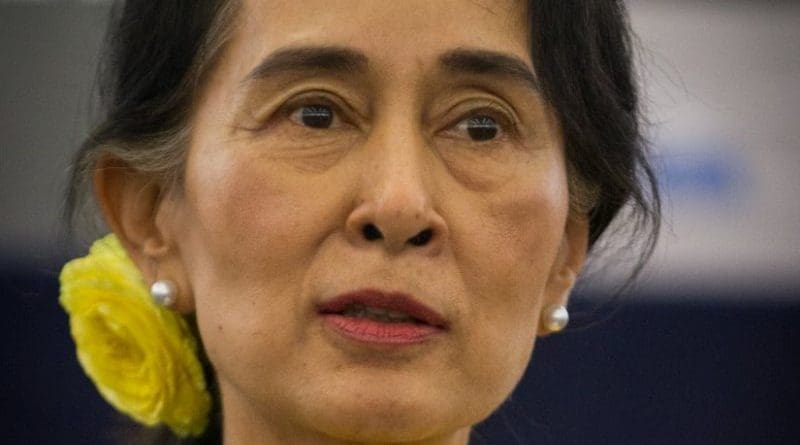Burma: Aung San Suu Kyi Not Doing The Press Any Favors – OpEd
By Amitava Mukherjee
Just as the National League for Democracy (NLD) led government in Myanmar completes its first year in office, questions are being asked in different circles whether Aung San Suu Kyi epitomizes the above quote, which she herself made before the 1990 general election in Myanmar. There is no doubt that her government exhibits a palpable sign of nervousness. But what detracts from her credibility most is the NLD government’s hostile attitude towards the institution of fourth estate in Myanmar.
The most contentious issue in this respect is Article 66 (D) of the Telecommunication Law, which prohibits the use of telecom networks to “extort, threaten, obstruct, defame, disturb, inappropriately influence, or intimidate” people. Violation of the law may lead to a jail sentence of up to three years.
Now the vast scope of the Article makes it quite clear that muzzling the press was the actual intention of the quasi-junta government which drafted it back in 2013. Statistics however reveal an interesting trend. During the regime of Thein Sein, the former junta president, only seven people were charged under this law, while during the government of Suu Kyi, in its short span, the Article has been invoked against 56 people, 12 of whom are journalists.
It is obvious that the NLD government wants to maintain a tight leash on the media. Otherwise it would have taken steps to impliment the Broadcasting Law of 2015, which would pave the way for the participation of private partners in the telecom world. On the contrary, attacks on journalists are increasing. Recently a journalist named Soe Moe Tun was murdered after his expose of illegal logging in Myanmar’s forests came to light.
In November of last year, Than Ttut Aung, the chief executive officer of the Eleven Media Group, and Wai Phyo, chief editor of Daily Eleven newspaper, were jailed. Moreover, a researcher belonging to the NLD itself was put behind the bars for alleged ‘defaming’ the commander-in-chief of the Myanmar army.
There is a distinct dichotomy in the utterances and actions of Suu Kyi. On several occasions, she has expressed herself against government control of media. “I think government-owned media is not good for democracy. We will not abolish it immediately, but we don’t want to delay doing it as well,” Suu Kyi had said immediately after winning the last election. A year has passed since she took charge of the country. Still there are four government-owned newspapers in Myanmar.
But it would not be proper to conclude that Aung San Suu Kyi has become an autocrat. Those who have known Suu Kyi since her days in the Lady Shri Ram College in Delhi will vouchsafe for her love of democracy and an open society. Being hard on the media, she is perhaps trying to keep the army in good humor, without realizing that it may open a pathway for totalitarianism which has been the bane of many nation-states in Southeast Asia. It is also unfortunate that she has allowed an air of mistrust to come up between herself and the indigenous media. While local newspapers are generally kept at a distance by her NLD managers, the Lady – as Suu Kyi is widely known in international circles – maintains a cozy relation with the Radio Free Asia, and often sits for one-on-one interviews with the BBC, Washington Post, Channel News-Asia, and Xinhua.
This disconnection with ground-level realities has hampered her attempt to initiate a peace process with warring ethnic minorities. As the Lady and her party managers are inexperienced in the art of administration, Article 66(D) is being widely used and misused, not just by the government, but several media organizations as well.
Yet the onus of responsibility rests largely with the government and here the NLD must account for the nine-month jail sentence handed to a man for calling Hten Kyaw, the president, ‘crazy.’ So a course correction is urgently needed for Suu Kyi if she keeps it in mind that in the World Press Freedom Index compiled by Reporters without Borders, Myanmar stands at 131 out of 180.
The opinions, beliefs, and viewpoints expressed by the authors are theirs alone and don’t reflect any official position of Geopoliticalmonitor.com, where this article was published.

